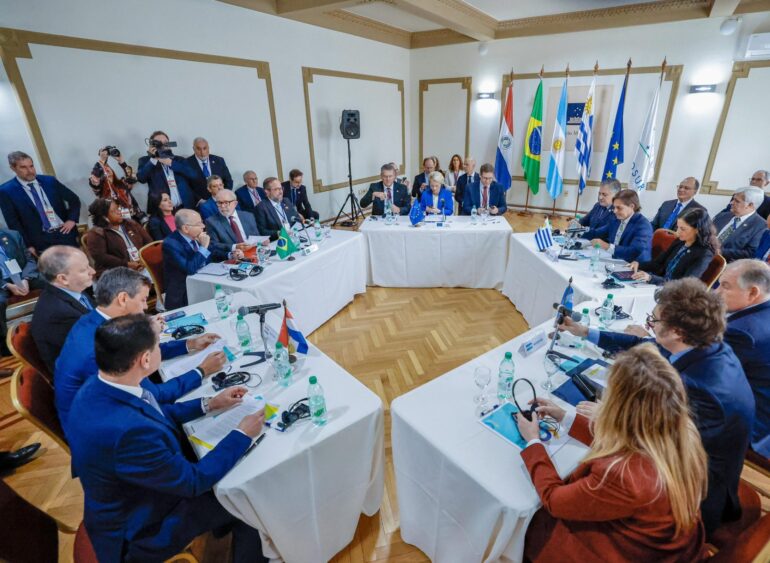The new EU/Mercosur Agreement that many countries, including Paraguay, reached this Friday with the European Union, differs significantly from the one announced in 2019, whose conditions were unacceptable, according to Brazilian President Luiz Inácio Lula da Silva. Referring to the new agreement, he said “it is a modern and balanced text that recognises Mercosur’s environmental credentials.”
In his address to the Mercosur Heads of State, following the announcement made with European Commission President Ursula von der Leyen, the Brazilian leader emphasised that the new EU/Mercosur Agreement incorporates issues of high relevance to Mercosur’s interests.
“We have preserved our interests in public procurement, which will allow us to implement public policies in areas such as health, family farming, and science and technology,” said the Brazilian President, highlighting one of the agreed points.
“Additionally, I have mentioned that the schedule for opening Mercosur’s automotive market has been extended, safeguarding the ability to promote industrial development in the region.”
Another key point is the establishment of mechanisms to prevent the unilateral withdrawal of concessions agreed upon at the negotiating table for the new EU/Mercosur Agreement.
“We are securing new markets for our exports and strengthening investment flows. After two years of intense negotiations, we now have a modern and balanced text that recognises Mercosur’s environmental credentials and underscores our commitment to the Paris Agreements,” added the Brazilian President.
Lula da Silva affirmed that Mercosur is reclaiming its position in international trade with this agreement. He has also referenced progress on other agreements, including the one concluded in 2023 with Singapore.
“The global geopolitical and economic reality shows us that integration strengthens our societies, modernises our productive structures, and promotes more competitive global participation,” he said.
“I have highlighted that with Bolivia’s inclusion, Mercosur becomes the seventh-largest economy globally, with a combined GDP of nearly $3 trillion and an internal trade volume of $55 billion.”
“Our agricultural strength guarantees food safety for several countries worldwide, meeting rigorous health and environmental standards. We will not accept attempts to tarnish our products’ recognised quality and safety,” he added.
“Finally, I have stated that Mercosur exemplifies how economic development can be reconciled with environmental responsibility. In this context, I have announced that Brazil would propose launching a cooperation program for low-carbon agriculture and promoting sustainable agricultural exports: Mercosur Verde.”
“Our pad has a historic opportunity to lead the energy transition and tackle the challenges posed by climate change,” he concluded, still referring to the new EU/Mercosur Agreement.
It has taken quite some time to agree an EU/Mercosur Agreement between the two trading blocks, with many commentators putting the disagreements down to EU demands for environmental protection as part of ongoing operations which have been un-welcomed by some Brazilian farmers, and European farmers wanting to ensure that the standards they are held to themselves also apply to Brazilian farmers, if the deal is to go ahead.
The completion of the new EU/Mercosur Agreement marks a major step forward for trade between the two organisations – the European Union, and Mercosur – and most analysts expect increased trading volumes as a result of the new agreement.


